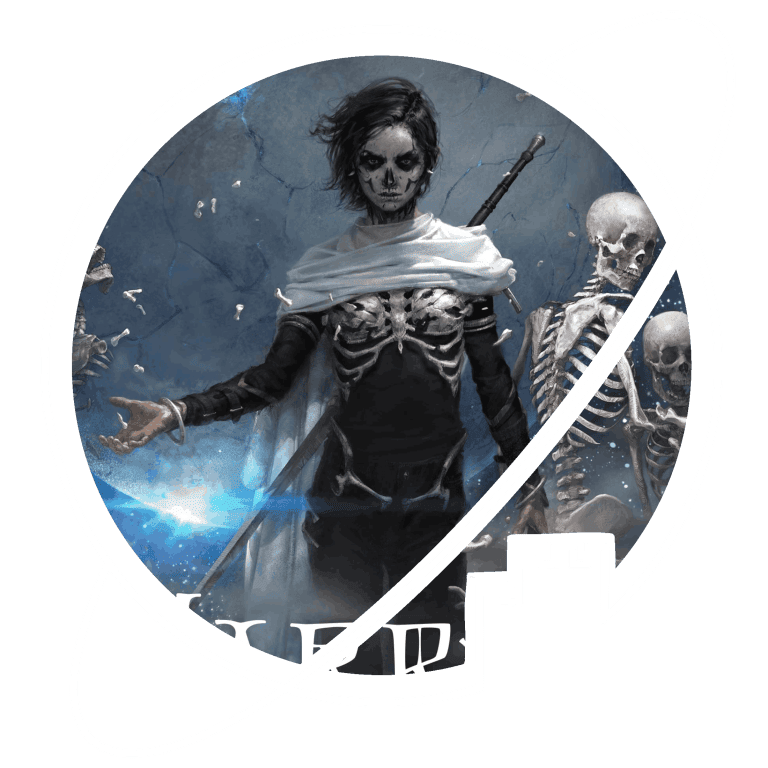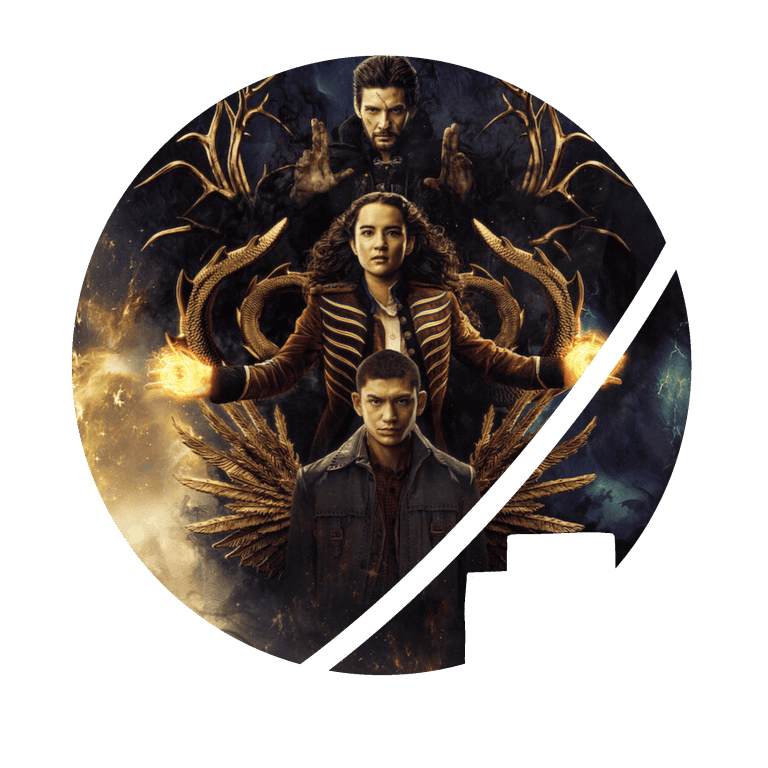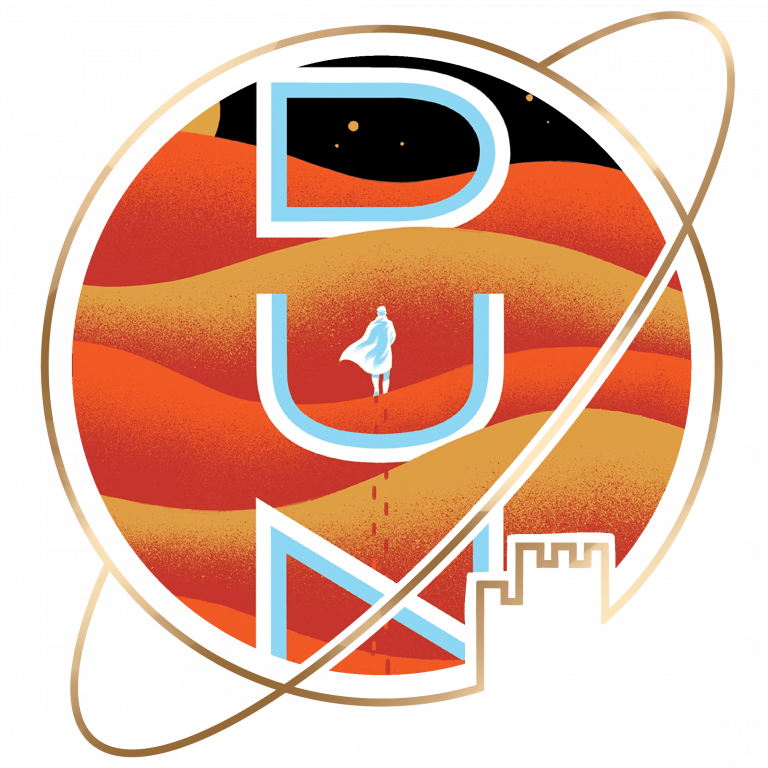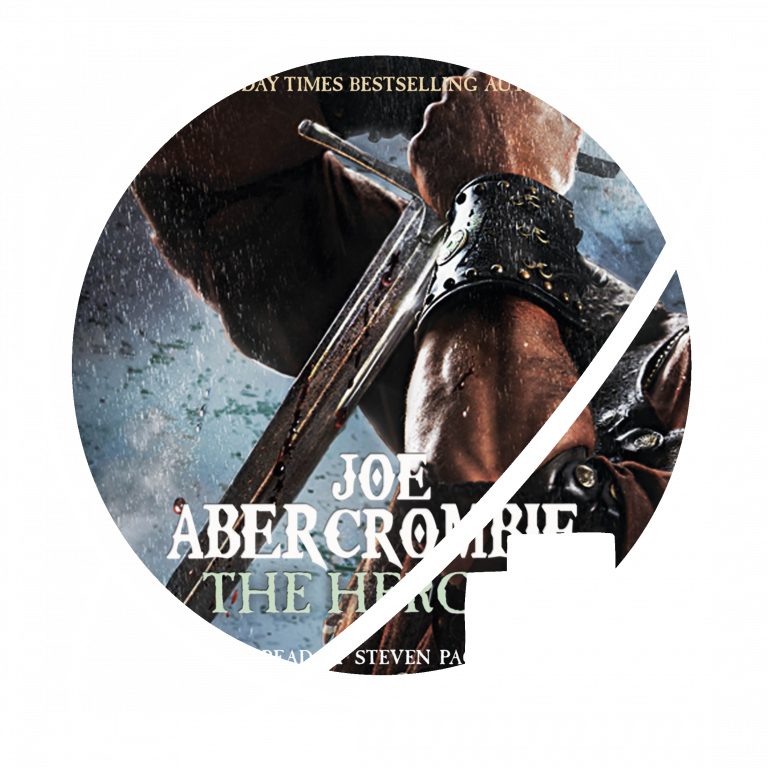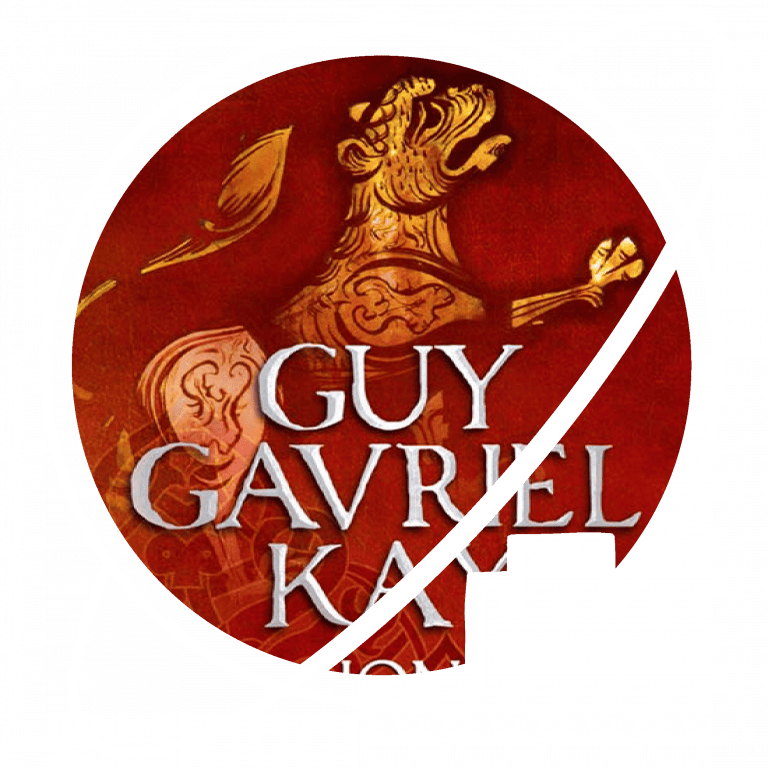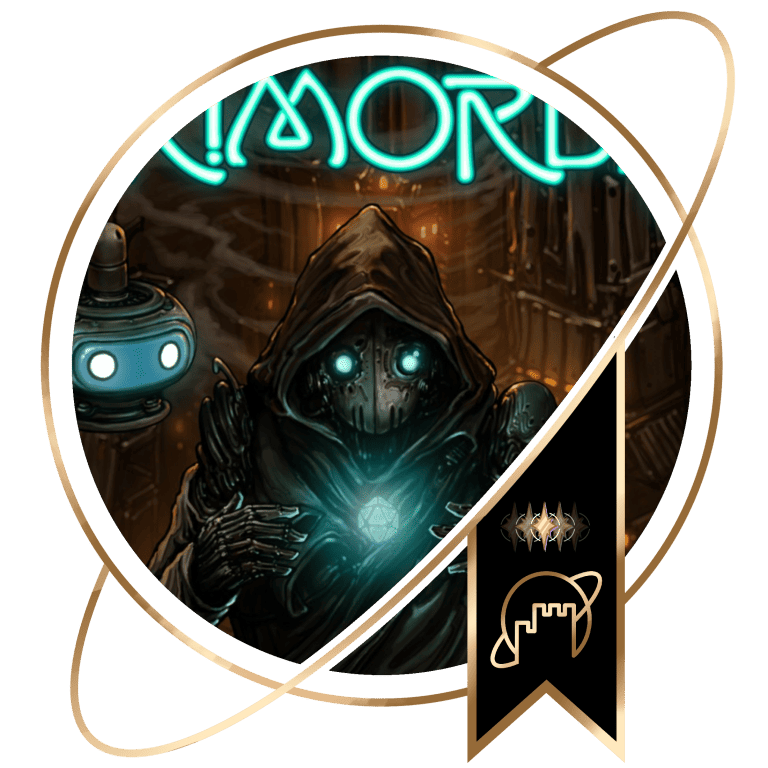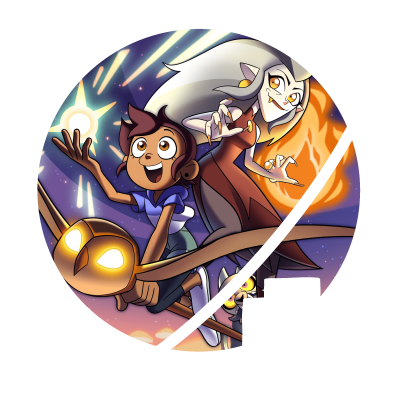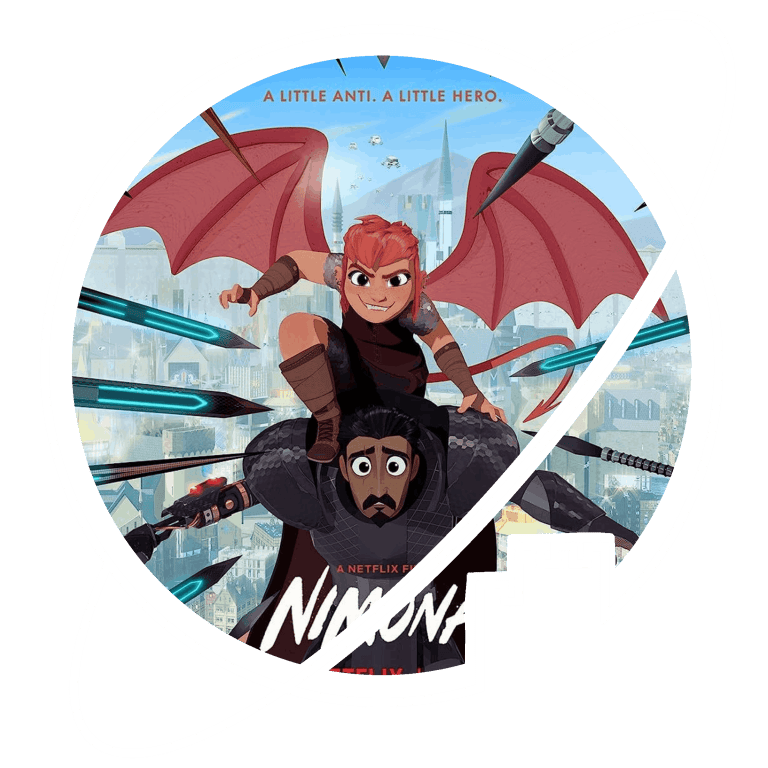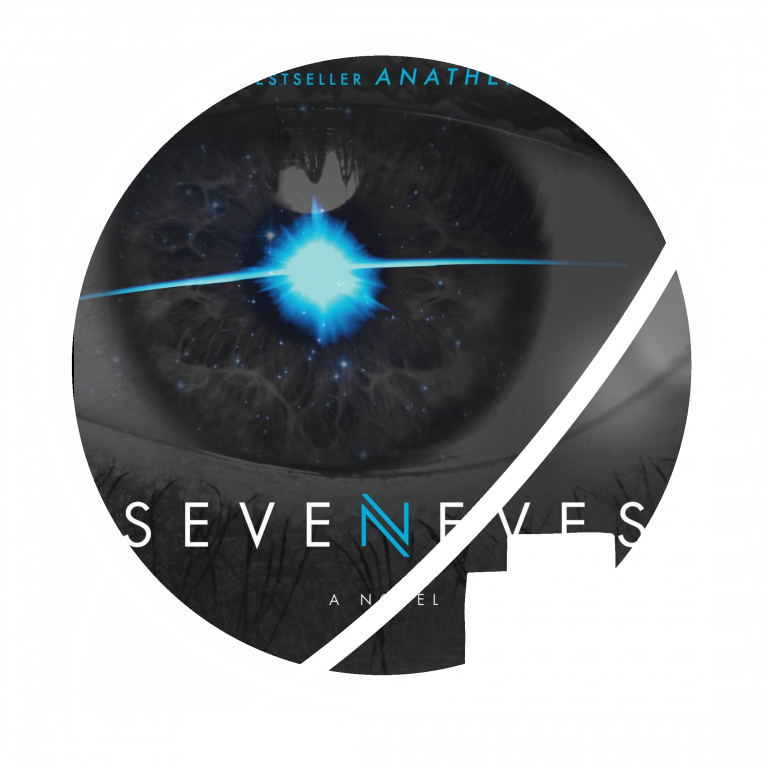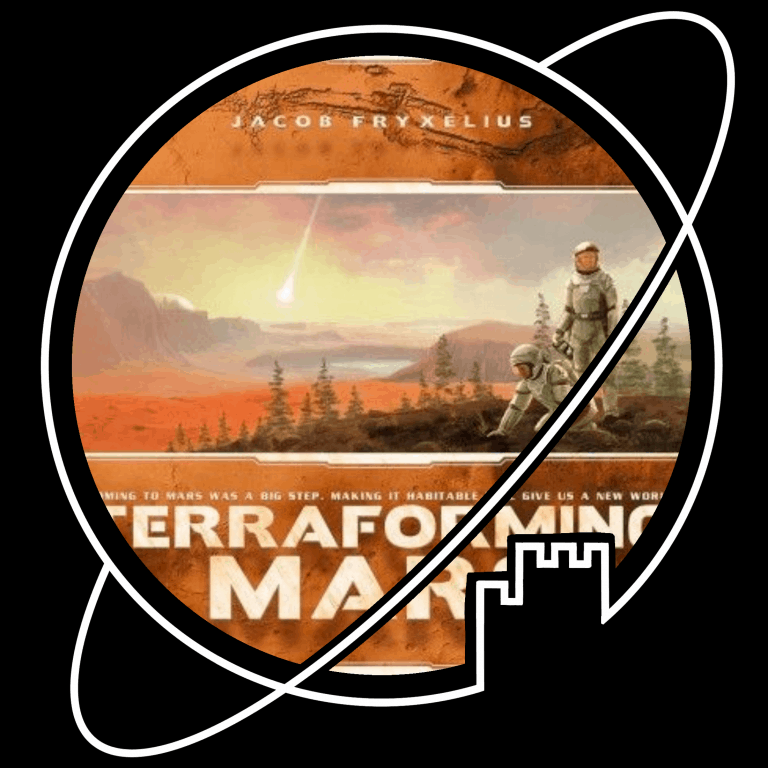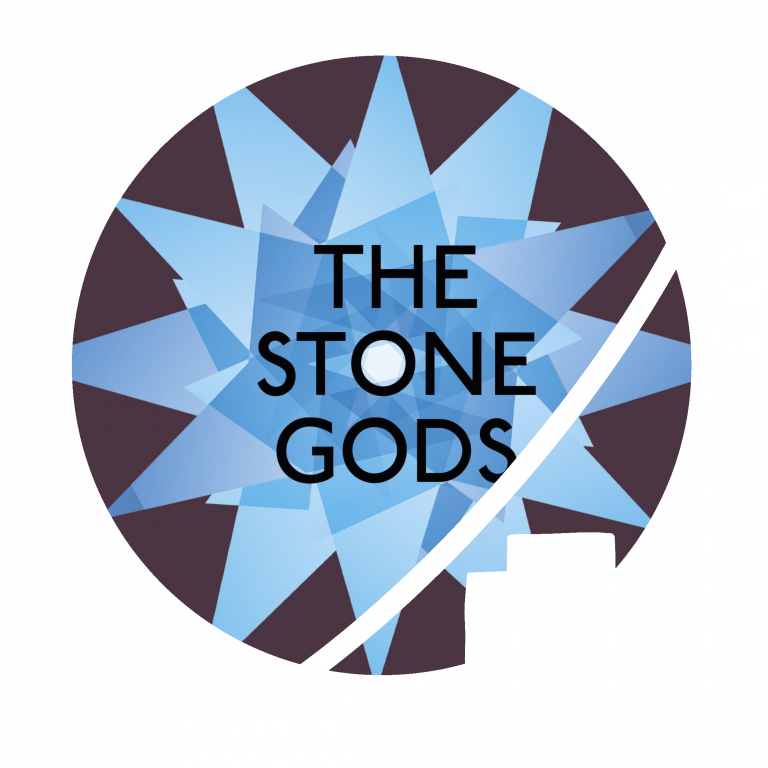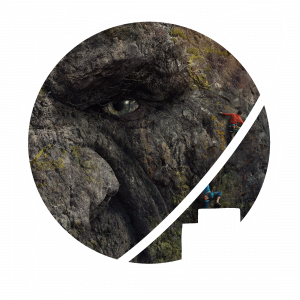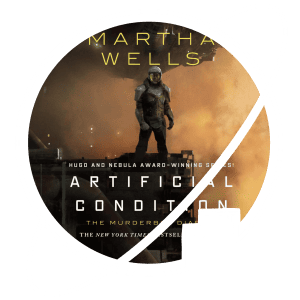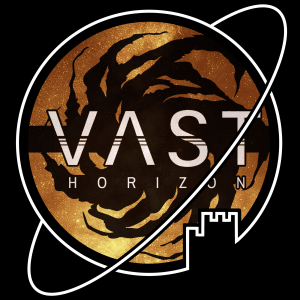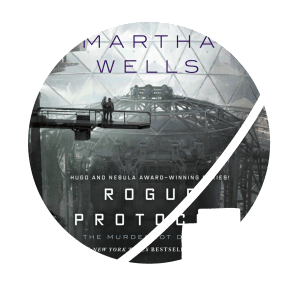A curated Collection of Fantasy and Science Fiction Media
Recent Updates
- Novel written by Tamsyn Muir
- Published September 10th, 2019
- Part one of the Locked Tomb series
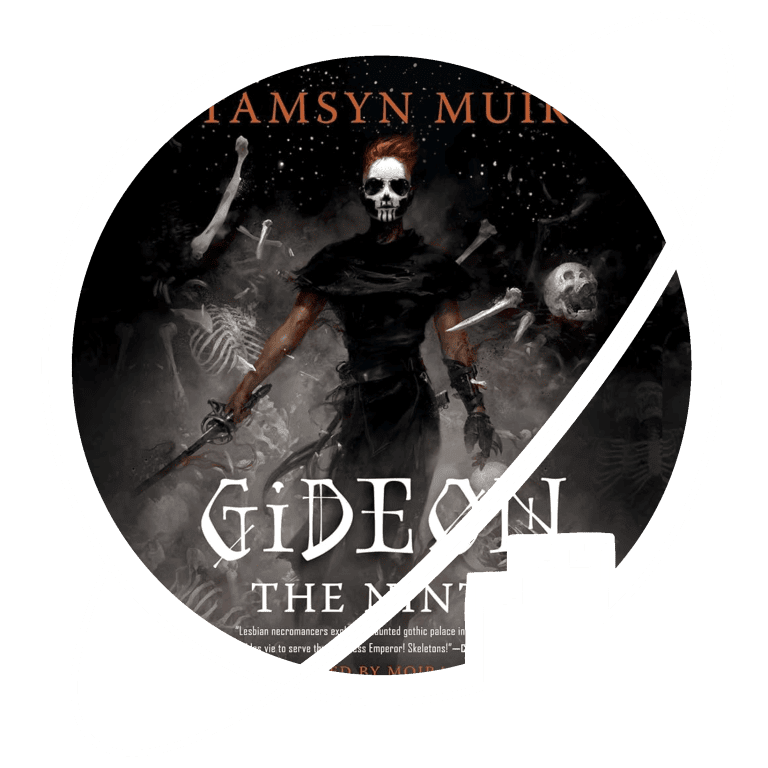

I’ve seen Gideon the Ninth around for a long time, and I was never hugely interested in reading it. I’ll be honest: I don’t care for the skull face paint, so I was never really drawn to the cover. I did know that other people were loving it, though. Recently I decided to go back to listening to audiobooks, and Gideon the Ninth was the first book I ended up listening to.
I have to preface this review by saying that I kind of struggle with audiobooks sometimes. I’m really bad at listening! If I were to rewind every time I noticed my attention drifting elsewhere, I’d have to rewind pretty much a whole book. I don’t think Gideon the Ninth was the right book to listen to for me, to be quite honest. A LOT happens, and there is a huge cast of characters. It even starts with a Dramatis Personae, which had me slightly worried. I think if I’d read the physical book it may have been easier for me to keep up with who’s whom. Overall I don’t think I missed out on a lot, but the characters did all blend into one a little bit (with some exceptions). If you don’t struggle with paying attention, I would really recommend the audiobook, because Moira Quirk does a phenomenal job of narrating this story.
Gideon the Ninth is one of those books that are very hard to categorise. It’s kind of fantasy, kind of sci-fi, kind of horror? At the same time, it’s really none of those genres. It’s always refreshing to find a book like this. It also means that it can be slightly harder to understand the characters and their motives. The book starts with Gideon wanting to escape the Ninth House, but while it is clear what she’s trying to escape from, it wasn’t at all clear to me where she wanted to escape to. Even at the end of the book, you don’t have much of a sense of what the universe of Gideon the Ninth is like. The novel doesn’t really evoke anything familiar, which means it has to work a little harder on the characters to keep the reader engaged.
The main characters are where Gideon the Ninth really shines. Gideon is a phenomenal main character, and her relationship with Harrowhark Nonagesimus is really fun to read. I also really enjoyed the character of Dulcinea Septimus.
The style of writing felt very young adult, but not in a bad way (because yes, I’m sorry, there IS a bad way). It is quite unusual in that the writing does not feel fitting to the setting of the story. However, it’s done in such an intentional way that it becomes a charming feature rather than a distracting one.
Overall I wish I would have read the physical book instead of listening to the audiobook. While the audiobook was great, I think I would have retained more if my mind hadn’t been able to wander so often. I may well be reading the sequel sometime soon!

Listened to the audiobook with Moira Quirk. No trouble with the narrator, but I have to agree with Lotte that a book that throws a dramatis personae your way, introduces a cast of characters with similar sounding silly names, then tosses them and re-introduces a completely different and even larger cast of characters with (somewhat) similar sounding silly names is perhaps best read rather than listened to. I’m generally an attentive listener, but it took me a few hours until I finally looked up fan drawings of the characters so I could start telling them apart. I didn’t feel like I missed much, though, which may or may not say a lot about this book and/or about me.
Gideon the Ninth is one of the weirder books I’ve read recently. I mean, whoever came up with a Halloween-decorations-spooky-science-fantasy-horror young adult novel about lesbian necromancers and also fencing? I certainly wouldn’t have. And to be honest, that’s maybe one of the reasons Gideon the Ninth didn’t click for me.
Tamsyn Muir deserves all kinds of credit for bringing together these tropes and creating perhaps one of the most unexpected novels put to paper over the last years. In a sense, it is what the speculative genre is all about: coming up with new ideas and combinations that trigger the imagination.
This time, though, the result sort of fell flat for me. Muir makes a very deliberate choice to have her teenagers in this science fantasy horror universe sound like, and act like, modern day teenagers. Which, let’s be real, is kind of cringe. Intentional cringe, but still cringe. This combines with the edgy Halloween-horror vibe and Warhammer-level over the top silly names (”Harrowhark Nonagesimus” “Coronabeth Tridentarius” “Priamhark Noniusvianus” – I did not just come up with those) for a level of cringe that was, frankly, a little much to stomach.
Now, I realise that edgy teenage cringe is probably a more interesting/original take on this kind of story than Grimdark Pessimism and Deep Suffering ™ would have been. Unfortunately, I seem to sometimes like Grimdark Pessimism and Deep Suffering ™ and edgy teenage cringe, well, not so much.
So, what we are left with is a story that is amazingly original and creative, but makes all the wrong choices for me to like it. Clearly the potential was there. Unfortunately, rather than focusing on word building, or an interesting hard-magic-necromancy-system, or complex politics between the houses, or even, really, a strong mystery plot, Muir goes for teenage rivalry and anxiety and hormones. The wider universe never really comes into focus, the nine houses are nominally different but I didn’t feel any depth to those differences, the plot is perfectly functional but not really set up for the reader to actually guess ahead of the characters so you’re really just along for the ride. In conclusion: not a bad book at all, but I am very much not the target audience.
One point I do need to go into though. The fencing. Our protagonist Gideon is a fencer! In fact, she does (two-handed) longsword (just like me!) and is then forced to switch over to (single handed) rapier. You can tell that Muir must have had some level of input from an actual HEMA (Historical European Martial Arts)-practitioner, because she gets too much right for it to be a mere coincidence. Fights are quick and decisive, weapons are used like they’re supposed to be used. Some of the best dueling scenes I’ve read in a long while! I’m honestly pretty impressed.
But I have a feeling she doesn’t actually fence herself. She describes Gideon’s trouble switching from longsword to rapier. Of course I’m not Gideon, but I’m a longsword fencer occasionally dabbling in rapier, and I can tell you that my main struggle is that you’re constantly trying to use a rapier as a cutting sword when it really isn’t well suited for that – besides that, principles from the bind aren’t all that different between rapier and longsword. Unlike Gideon, I was using my second hand just fine (but then, I also did some saber and messer, and we train wrestling with the sword on a semi-regular basis so I am not afraid of taking a hand off my grip every now and then). Still, the fact that I’m even able to have this kinds of a discussion is a win in my book!
Tagged:
- Action, Adventure, Atmospheric, Award winning, Bonding, Book, Character-Driven, Dystopian, Fantasy, Female Author, Horror, Humor, LGBTQ+, Locus Award, Low Fantasy, Mysterious Parentage, Mystery, Occult, Original Setting, Quest, Science Fantasy, Science Fiction, Series, Teenagers, Violence & Gore, Young Adult
See also:
- Book written by Shelley Parker-Chan
- Published 22 August 2023
- Part 2 in Radiant Emperor
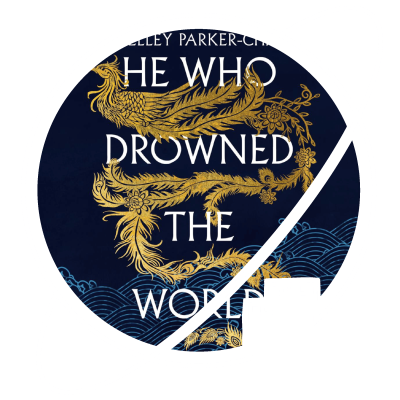

Listened to the audiobook with Natalie Naudus again – would definitely recommend the experience to make China actually sound Chinese.
I was very enthousiastic about She Who Became the Sun, a book I randomly picked up because of the Hugo nomination. Ever since I’ve finished it, I have been recommending it left and right, in particular for its historically plausible inclusion of 21st-century themes in a book set in medieval China. I’ve had the sequel to She Who Became the Sun on my release radar ever since I finished the first book, and I loaded He Who Drowned the World into my player almost the moment it became available.
And it did not disappoint!
He Who Drowned the World is a lot darker than She Who Became the Sun, and by ‘a lot’ I mean a big lot. The first book has some negative themes, such as revenge and body dysphoria. And of course, Zhu will literally and figuratively kill to reach her fate. But Zhu is, on the whole, an optimist with a positive drive.
He Who Drowned the World, however…
The second book focusses on Wang Baoxiang, the new Prince of Henan – as a point of view character in addition to Zhu. And he is one of the most tormented characters I’ve ever read, with frightening self-loathing and purpose dripping off the pages . Reading his chapters filled me with equal measures of disgust, pity and awe. To think this is only Parker-Chan’s second book and already she has developed such finesse in making her character’s deepest, darkest thoughts feel true makes you almost dread what torment she will bring to her pages in the future.
I would compare the darkness of He Who Drowned the World to Joe Abercrombie’s writing, but Parker-Chan doesn’t mix in the black British humour that Abercrombie does, making the read a whole lot heavier.
The darkness Wang Baoxiang injects into the narrative fits well with the theme of this second book. A whole cast of characters, each with their own glowing mandate of heaven, is vying for the throne of the Great Khan. As they battle each other for the best position to take on the capital of Dadu, each in turn is confronted by the cost of their great desire. What are they willing to sacrifice to become Great Khan? What must they do to make it all worth it?
I think this is a great theme for a novel which really drives home the point that ‘no really, they are all the villain’. Each of the pretenders tears apart those around them and must leave something of themselves behind to reach that one goal. In a way, He Who Drowned the World fits the frame of a classic Shakespearian tragedy very well.
So Parker-Chan deserves the highest praise for her character writing. Does the rest of the book hold up?
Well, it’s probably not what you’re reading the series for, but it is not bad either. He Who Drowned the World has nothing of the classic comfort we all know from the first book in a fantasy series, but rather dives straight into the action, both at court and on the battlefield. Really though, all of the plot is strictly in service of the character arcs of the main characters; and while there are tense moments, they exist for the characters to doubt their conviction rather than for any real chance the plan will fall apart.
I would even go as far as to say that the book has a bit of a weak point in Zhu’s naval campaign, in which Zhu comes up with increasingly far fetched and unlikely clever tricks to beat an opponent that by rights should have defeated her easily. I realise it is Zhu’s trademark from She Who Became the Sun, but it really rubbed me the wrong way this time; it fits with the annoying Hollywood trope of medieval battles always being a mess without any sort of organisation, that end up being won through too-clever-by-half techniques that would not work in real life (think about it, if random balls of flaming whatever-it-is-Hollywood-special-effects-teams-love would have won battles in history, we would have sources telling us about them). I have always felt that it shows a lack of respect for the medieval mind to suppose that these people just failed to come up with these brilliant, battle-winning stratagems that writers behind their 21st century desks dream up.
That – very personal – rant aside, I really enjoyed He Who Drowned the World – I think I blasted through it in only four or five days (admittedly, I had a sowing project to get through). I think it’s grimdark tone means it may be less appealing to some than She Who Became the Sun. But I think the character writing is some of the best out there, and if you are not put off by a dark tale of mental, physical and sexual violence, He Who Drowned the World is a gripping read you won’t be able to put down.
Tagged:
See also:

Collected on: September 24th 2023
- Video game developed by Wormwood Studios
- Directed by Mark Yohalem
- Published by Wadjet Eye Games
- Published in 2012
- Point-and-click adventure
- Playing time: 6-8 hours
- Platforms: Microsoft Windows, MacOS, Linux, iOS
Collected: Primordia is a beautiful and atmospheric point-and-click-game, following the story of Horatio Nullbuilt, an android living in a crashed ship in the desert wasteland, who has his life turned upside down when a hostile robot steals his ship’s power core. Horatio is determined to scavenge the post-apocalyptic wasteland for a new core, but Crispin, his self-built sidekick, suggests that perhaps it would be easier to find one in Metropol, the city of glass and light…
Jop: Welcome to this in-depth, spoiler-free discussion of the video game Primordia, which our curator Peter has added to the Escape Velocity Collection, a series of items that we believe represent the absolute peak of what the speculative genre has to offer.
I challenged Peter to defend his addition to the Collection – why should everyone pick up this point-and-click pixel art game about robots?
- TV show developed by Dana Terrace for Disney
- Starring Sarah-Nicole Robles, Wendie Malick, Alex Hirsch, Tati Gabrielle, Issac Ryan Brown, Mae Whitman, Cissy Jones, Zeno Robinson, Matthew Rhys, Michaela Dietz and others
- Released in 2020
- 3 Seasons with mostly episodes of 20 minutes

When Jasmijn and I started watching The Owl House – only a few weeks ago at the time of writing this review – I mostly expected an animation series with a typical “some plot and a lot of filler episodes”-structure, quirky humour and some likeable characters. What I got was a unique fantasy/horror comedy setting with deep lore, many character-driven subplots and an impeccable pacing. And then I haven’t even mentioned the strong cast of characters!
The Owl House has a compelling main plot with plenty of mysteries and a main antagonist that suits the central themes of the story: the importance and beauty of wholly being yourself and the legitimacy of found families. Each character explores these themes in different yet interesting ways. Sure, I have a specific fondness for these kinds of stories, but I think the quality of the writing and humour make The Owl House especially accessible. Additionally, the cast represents so many different identities! Best of all, unlike in real life, never are these identities a part of the characters’ issues. Sure, they have struggles, personal goals and difficult people they have to deal with. However, things like their sexual preference or gender identity are never controversial. This kind of representation is still rare in media nowadays, but a treat to behold. And remember, this is Disney production. The creators had to fight for every crumb of LGBTQ+ representation. To name a few examples of the diversity that are canon and actually visible… We have a Latina bisexual female protagonist. A cool mentor character that suffers from a magical interpretation of a chronic illness. An older non-binary character using they/them pronouns. Asexual characters, lesbian characters, characters that have two dads, genderqueer characters etc. It’s an universal story.
I would also like to very much praise the art and animation of this series. Though I wasn’t immediately sold on the aesthetics of the Boiling Isles setting, I quickly came to appreciate how it fits the worldbuilding and main themes. Also, there were multiple action/fighting scenes that really had me excited because of the smooth animation!
Unfortunately, many wonderful series get cancelled too quickly. Series that have important stories to tell and the right loveable yet complex characters to tell them with. The Owl House is definitely one of these series. Luckily, the creators still got the chance to end things in a satisfactory way.
I can honestly say this show will forever be one of my comfort go-to’s. #Lumity
Tagged:
See also:
- Book written by Kim Stanley Robinson
- Published April 1996
- Part 3 of the Mars Trilogy
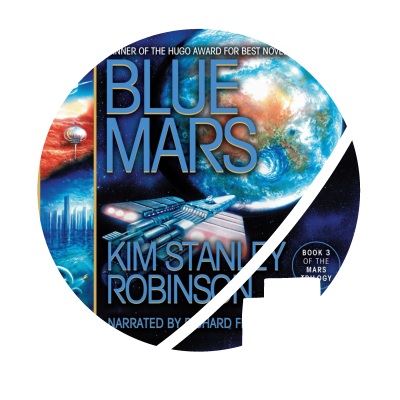

Listened to the audiobook with Richard Ferrone – narration fits with the book really well.
Blue Mars continues the evolution of the Mars-trilogy: from the intra-group politics of Red Mars, to the Martian politics of Green Mars, Blue Mars now brings us interplanetary politics involving not just the Earth and Mars, but the inhabitants of the rest of the solar system as well.
Interestingly, with the increasing scope of the narrative, it felt as if Robinson was able to let go of the need to describe every stage in the story. Instead, Blue Mars returns to more of a patchwork of separate stories that are actually much closer to some of the characters in the story. As a result, even though the book covers a lot more time and space than the previous works, it feels at least as character-driven as Red Mars.
Blue Mars is also a lot more diverse than either Red or Green. As Mars undergoes terraformation, its climate and biosphere grow more robust and varied – and so the action doesn’t just take place on red desert or white ice, but on biotopes nearly as diverse as those on Earth. In addition, without giving away more than necessary, Blue Mars takes some of our main characters off-planet on expeditions to places familiar and new. All in all, not a page of the book feels stale, or a rehash of what the trilogy has done before.
That being said, this is still the Mars-trilogy, with its trademark deep dives into areology (that is to say, the geology of Mars), sociology, politics and, in Blue Mars, even the biochemistry of memory and a little string theory (I am not making this up!). And if you’ve gotten to this point in the trilogy without giving up, I am sure you’ll enjoy those tangents too!
If you’ve read the first two books, you’ll know what to expect: a novel that puts the science in science fiction, while intimately close to a set of characters that are each struggling with their relationships to those around them, and with their role in the colonisation of Mars.
Above all else, Blue Mars is a very satisfying conclusion to an ambitious trilogy, and a cli-fi novel that wrests a hopeful ending from the jaws of realism – perhaps that final achievement alone makes it worthy of the 1997 Hugo!
Tagged:
See also:
- Novel written by Adrian Tchaikovsky
- Published January 1st, 2015
- Part one of the Children of Time trilogy
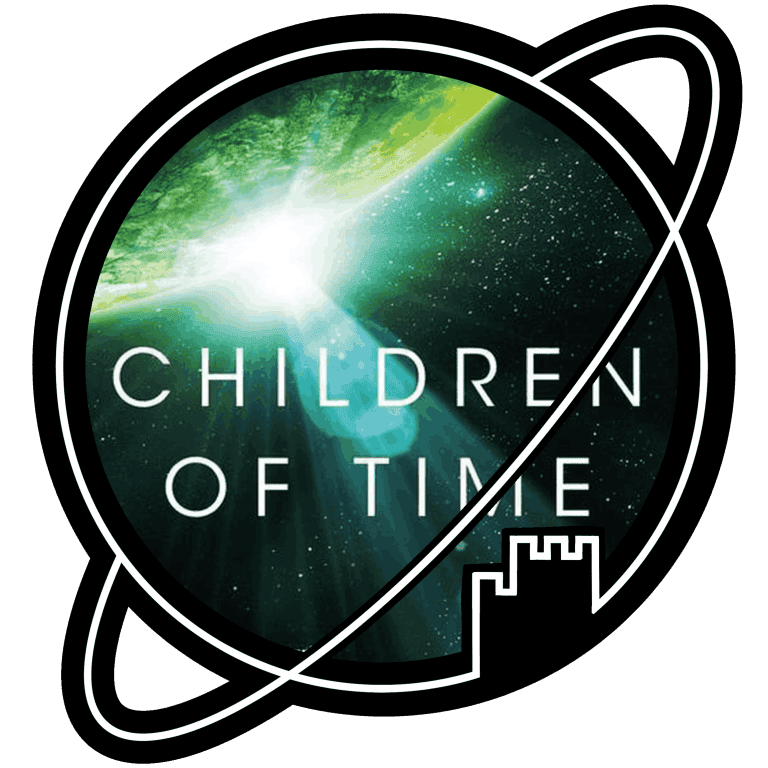

Children of Time is one of those books that so many people recommended to me that at some point it just had to skip to the front of my shelf of shame, despite that fact that Tchaikovsky’s Dogs of War fell in the decidedly meh-category for me.
So the question is: why the hype, and did Children of Time live up to it?
I think the hype mostly comes from the fact that Children of Time is very original. It’s just new. It does things you can’t find elsewhere in science fiction.
Children of Time features an ambitious long-timelines evolutionary narrative that is not only very interesting in its worldbuilding, but somehow also manages to stay interesting on a plot level.
And then the novel combines that one narrative, that will take countless years to cook properly, and combines it with another narrative of humans in-and-out of cryosleep on a colony ship – which skips through the same amount of time featuring a single, continuous set of characters.
The setup takes a couple of sci-fi handwaves to work, but I’m all aboard with that for such a clever idea. This story structure addresses some of the typical issues with stories with far horizons (Asimov’s Foundation comes to mind) in that the human characters, with whom the reader is supposed to bond and who are ultimately what draw the reader into the story, necessarily can’t survive long enough to make it into the next chapter.
Tchaikovsky’s clever structure alone is probably enough to make this book worth reading. But the hype does not lie – both halves of the narrative are also independently good.
The spider half of the story (wait, what? Yes, a spider-half of the story), focusing on biological and cultural evolution, moves at breakneck speed and may strain your suspense of disbelief at times, but it is always interesting and surprisingly suspenseful given the shifting main characters.
The human half of the story initially appears more traditional, but as the narrative progresses and the insanity of living in short bursts over the centuries on a cramped space ship ramps up, it takes a turn for the surreal and ended up reminding me of the post-apocalyptic psychedelic ride that is Metro 2033.
If that doesn’t pique your interest, then I don’t know what will.
Is there anything negative to say about Children of Time? I think it would be that Tchaikovsky’s style is to focus on the interesting ideas more than on how they work – I saw Lotte mentioned Children of Time fitting the ‘hard sci-fi’ category and I have to give that a hard disagree – its not as soft as some space opera, but artificial gravity fields? Human consciousness uploads? Rapid evolution virus that recognises other bearers of the virus? Stuff like that is borderline magic, and while I don’t have a problem with it per se, Tchaikovsky leans on it a lot. But as long as you don’t go into it with the wrong expectation, that should not keep you from enjoying Children of Time.
One final thought – which some may consider a spoiler and some may not, so read at your own peril – is that Children of Time shares a very negative perception of humanity with Dogs of War, with both novels eventually settling on the conclusion that humanity needs to be ‘redeemed’ or ‘improved’ by some outside factor. I don’t mind a bit of moralising, but the ending of both novels was frustrating to me because Tchaikovsky is telling us we’re not good enough, but in neither case his suggested improvement is something that we have. I guess I’ll just have to take it metaphorically.

I got this book as a present from my dad. Whenever I get gifted a book, I try not to look at the summary on the back and just go in blind. That’s what I did with Children of Time.
All I knew going in was that it was a Sci-Fi story about evolution. And it was! Children of Time is unlike most novels precisely because of this focus on evolution. While we do follow a couple of specific characters from the start to the end of the book, this is only the case for one half of the cast: the humans. The other half of the cast are spiders.
It feels a bit like a spoiler to say that in a review, but I feel that it’s extremely relevant because of two reasons. One: if you hate spiders, as many people do, this book may not be for you. However, the second reason is that Children of Time is a fascinating exploration of what a society of spiders may look like, had they evolved in a similar way to humans.
I’m not a huge fan of spiders myself. I like the idea of them, but I like to keep some distance between us, generally. However, I really enjoyed the spider chapters in Children of Time. They offer some extremely fun world-building and surprisingly believable characters.
I wasn’t as much of a fan of the characters on the human side, but the writing was solid and both sides of the story made sense, in a way. I think it would be easy in a story like this to paint one side as the “bad guys” which doesn’t really happen here.
One thing I wasn’t counting on but I feel I should warn readers for is the fact that this is part of a series. It’s definitely readable as a stand-alone, and the ending is satisfying enough for me (though I can also imagine people disagreeing very strongly on this). Still, around halfway through I started to feel like I was reading a prequel for another story. It’s very much a story of “how we ended up in this situation”. I was expecting the ship to land at some point, and for there to be genuine conflict between the spiders and the humans, but that’s not really what this book is about. Children of Time focuses mostly on the evolution of the spiders, and the struggles of humanity trying to survive in a time where Earth is no longer inhabitable.
While I really did enjoy this book, I didn’t find myself running to the store to buy the sequel. Most of the story is neatly tied up at the end of the book, albeit very hastily. I’m still unsure whether I think that’s a good thing or a bad thing.
Overall I would definitely recommend Children of Time! Especially if you like Hard Science Fiction, good world-building and, of course, spiders.
Tagged:
See also:
© 2023 – Escape Velocity – A Curated Collection of Fantasy and Science Fiction Media
Privacy Overview
| Cookie | Duration | Description |
|---|---|---|
| cookielawinfo-checkbox-analytics | 11 months | This cookie is set by GDPR Cookie Consent plugin. The cookie is used to store the user consent for the cookies in the category "Analytics". |
| cookielawinfo-checkbox-functional | 11 months | The cookie is set by GDPR cookie consent to record the user consent for the cookies in the category "Functional". |
| cookielawinfo-checkbox-necessary | 11 months | This cookie is set by GDPR Cookie Consent plugin. The cookies is used to store the user consent for the cookies in the category "Necessary". |
| cookielawinfo-checkbox-others | 11 months | This cookie is set by GDPR Cookie Consent plugin. The cookie is used to store the user consent for the cookies in the category "Other. |
| cookielawinfo-checkbox-performance | 11 months | This cookie is set by GDPR Cookie Consent plugin. The cookie is used to store the user consent for the cookies in the category "Performance". |
| viewed_cookie_policy | 11 months | The cookie is set by the GDPR Cookie Consent plugin and is used to store whether or not user has consented to the use of cookies. It does not store any personal data. |






